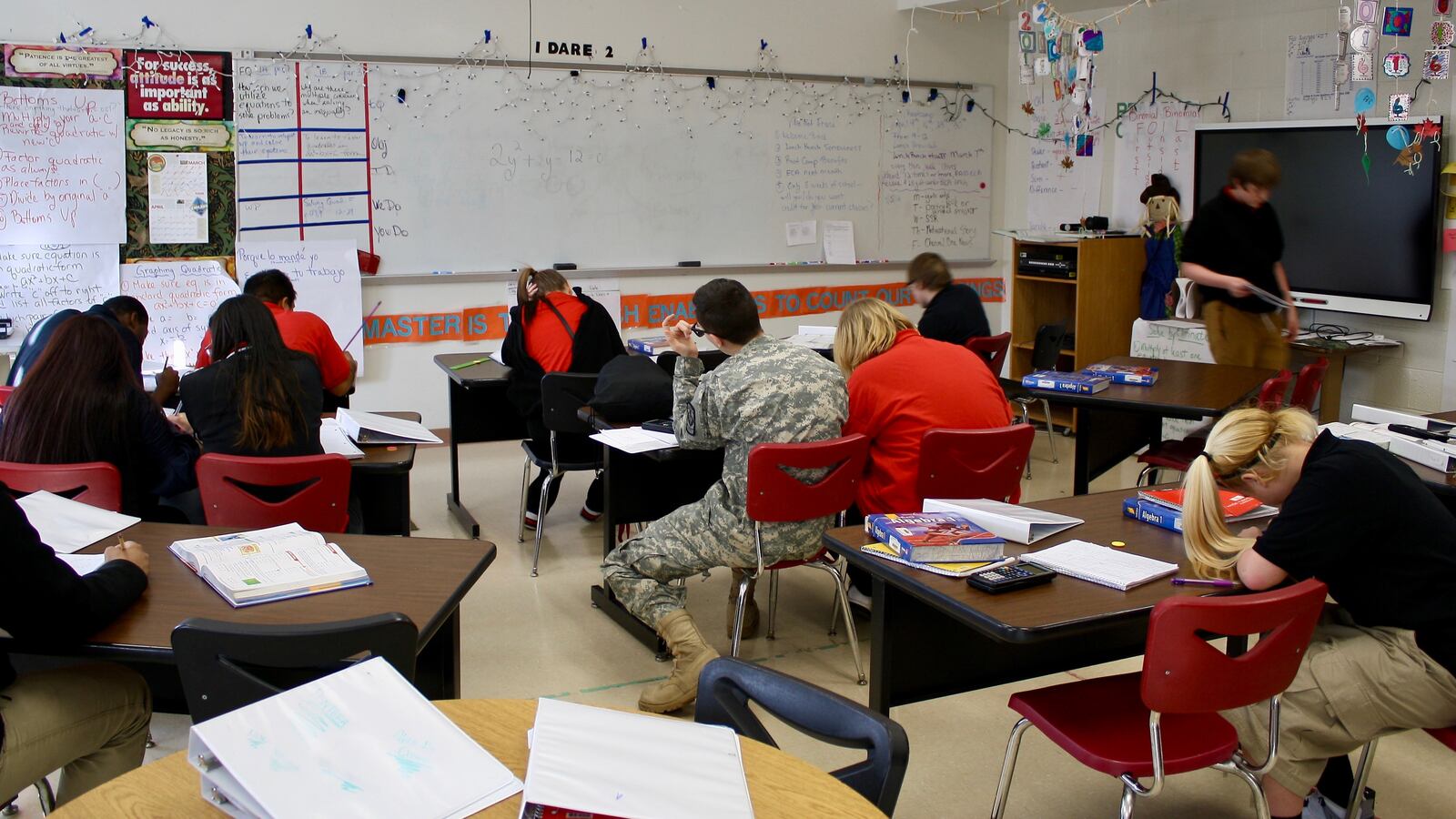An effort to solve debt crises in Gary and Muncie could end with Indiana lawmakers having the power to take over school districts, even if they aren’t failing.
A bill would create a brand-new district takeover process that mimics a strategy Michigan recently abandoned in Detroit — one that could largely cut state education officials out of the picture. Lawmakers are still working out a final version of the bill.
Takeover is just one of many strategies the state has as its disposal to help schools improve. But so far, the state has only taken over individual schools when they have years of low test scores and letter grades — and it doesn’t have a strong track record of turning them around. Of the four schools that were taken over by the state in 2012 and still remain under state control, all received F grades in 2016.
Lawmakers came up with the strategy to solve long-standing financial troubles in Gary Community Schools, which has racked up $100 million in debt and dwindled to fewer than 6,000 students. The district has also been labeled an F since 2011, with seven schools considered failing.
But over the past few weeks, Senate Bill 567 has been adjusted by House lawmakers to add the Muncie school district to the mix — which, despite having about $18 million of debt of its own, currently has a C grade from the state and no failing schools within its boundaries.
The prospect of having the state run schools that are doing an effective job on their own academically has caused one of the bill’s original authors, Democratic Sen. Eddie Melton of Merrilville, to reconsider the legislation he proposed.
“I do understand that academics and finances go hand in hand; however, I just caution the state on going down the lane of taking over entire schools corporations for academic purposes,” Melton, a former state school board member, said during a committee hearing Monday. “I know for a fact that the state has not been able to turn around, effectively, all of the schools we’ve taken over.”
It’s unusual for states to step in to run districts that are serving students effectively, according to Robin Lake, director of the Center for Reinventing Public Education, a think tank at the University of Washington that researches how districts and charter schools can work together.
“The financial takeovers are not uncommon,” Lake said. “Usually, when you see a district in financial distress, it’s also in academic distress. So it’s pretty rare you’d get a state taking over for financial reasons and not facing an academic problem as well.”
The legislation on the table explains what would happen to districts under takeover, but not what would cause the process to begin in the first place.
If the bill passes as it currently stands, Gary and Muncie would each be designated as a “distressed political subdivision” and move under the auspices of an emergency manager, fiscal management board, and chief academic officer. The bill would let the Indiana Education Employment Relations Board, which typically handles labor disputes, or the state treasurer trigger the takeover process, whether the district requests help or not.
The bill — which targets two districts but is written in a way that appears to leave the door open for others to follow the same process in the future — contains no specific provision for including the Indiana State Board of Education, which has handled school takeovers started because of academic shortcomings. Instead, the district superintendent would work alongside the emergency manager, and the manager would have to consult with the state education department when hiring the chief academic officer.
But the law spells out that the manager “has full responsibility and authority related to financial and academic matters” of the district, regardless of whether the administration or local school board approves.
That level of responsibility could be a tall order for a state that has already struggled to make academic improvements in the schools it has taken over.
“Often, the problem is that the state doesn’t have much more capacity than the district had,” Lake said.
As an alternative, she pointed instead to states such as Massachusetts that, like Indiana, have moved in the direction of allowing districts to come forward with their own plan for change and letting them retain oversight when it comes to academic problems.
Local lawmakers are pointing out other problems with the bill. Sen. Tim Lanane, a Democrat from Anderson, near Muncie, implored the committee to remove that district from the bill, arguing that the district is already acting to close schools and make cuts that could right its financial situation.
And Rep. Melanie Wright, a Democrat from Yorktown, worried that the timing of the bill is too fast — and that it could set an unclear precedent for school districts in the future.
“How would a takeover look different than what it is now?” Wright said. “We’re acting very swiftly … those tough decisions are already being made. What’s the trigger point in the future?”
That’s a good question, Lake said. A number of states have provisions for state takeover of districts, but she said they also typically have a clear outline of what might cause a district to be taken over and how it would work.
“As a general rule in any kind of state intervention, transparency and predictability are all really important,” Lake said. “People should know under what conditions the state will step in and generally what the process will be.”
Sen. Luke Kenley, a Noblesville Republican who helped propose the bill, said he envisions taking a case-by-case approach to struggling districts. In fact, he suggested, districts beyond Gary and Muncie shouldn’t necessarily worry.
“I think you may have to look at the individual corporation to decide how you can best help,” Kenley said. “I may put in the bill that this is not a precedent, and each school corporation will be dealt with on their own merits.”

